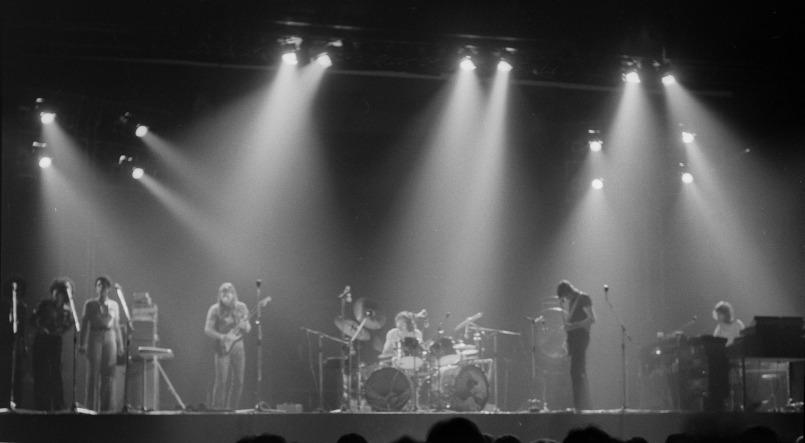Decades of recording sessions generated countless hours of unreleased Pink Floyd material, yet most fans will never hear these lost fragments. Studio practices from the 1970s—when tape was expensive and storage haphazard—created a shadow archive of erased jams, alternate takes, and creative experiments that now fuel obsessive collector networks worldwide.
When Equipment Fails, History Disappears
Technical disasters during legendary sessions accidentally created musical mysteries.
The Wish You Were Here sessions at Abbey Road became a masterclass in things going wrong. Engineer Brian Humphries struggled with malfunctioning studio equipment, at one point ruining backing tracks that forced complete re-recording. Each disaster created alternate versions, abandoned attempts, and rough mixes that were either wiped for tape economy or forgotten in storage.
Fragments and extended jams accumulated on reels that engineers treated as disposable scratch tracks—not the archeological treasures collectors now desperately seek.
The Britannia Row Wild West
Pink Floyd’s private studio enabled creative freedom and careless archiving.
Establishing Britannia Row Studios for Animals gave Pink Floyd unprecedented creative control—and unprecedented opportunities to lose material. The informal atmosphere encouraged lengthy instrumental explorations and Roger Waters-driven song fragments that never made final cuts.
Rigid documentation standards vanished along with EMI’s oversight. Reels were mislabeled, partially erased, or simply misplaced during the chaotic creative process. These sessions produced some of rock’s most celebrated music alongside its most mysterious disappearances.
Bootleggers Fill the Void
The Extraction Tapes phenomenon reveals how fans became musical archaeologists.
The Extraction Tapes—bootleg collections claiming to contain genuine Animals and Wish You Were Here outtakes—entered collector circles with disputed authenticity. Fans debate their legitimacy with forensic intensity, analyzing everything from tape hiss patterns to mixing board signatures.
Provenance remains murky: some derive from engineer reference cassettes, others from rough mixes duplicated before wiping, and many from sources that disappeared into private collections or studio clean-outs.
Mythology Feeds the Machine
Missing music becomes more powerful than found recordings.
The absence itself feeds Pink Floyd’s mystique. Hardcore fans spend decades piecing together clues from engineer diaries and band interviews, creating a parallel culture of musical detection that mirrors the alienation themes Floyd explored. This pursuit—not resolution—sustains bootleg trading networks and crowdfunded preservation projects.
The search for these tapes has become as culturally significant as the music they might contain. A band that explored themes of loss and absence left behind a literal void that fans continue filling with speculation and hope before remaining physical tapes degrade beyond recovery.


























